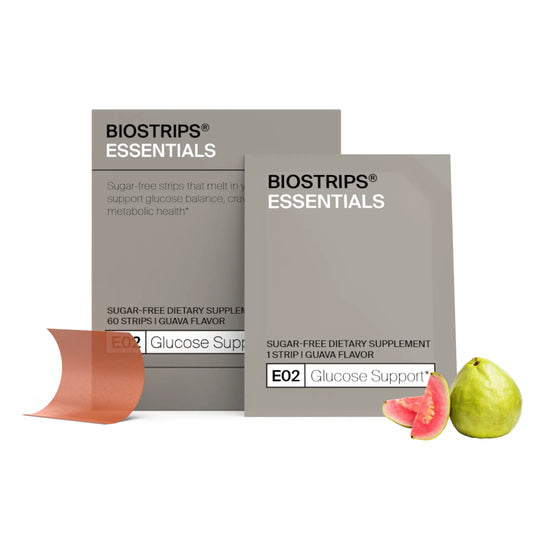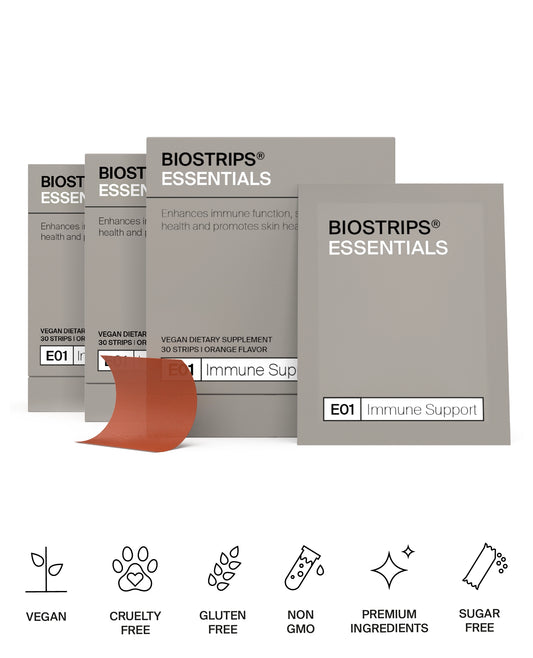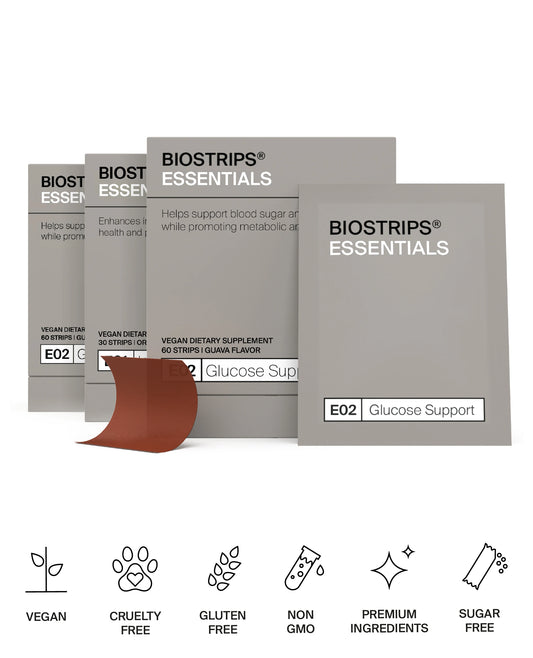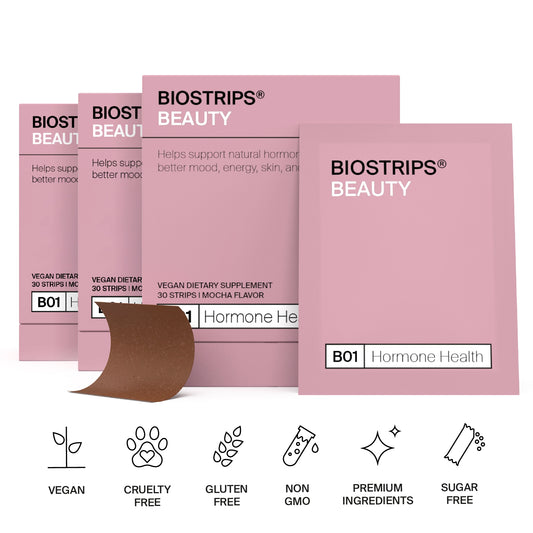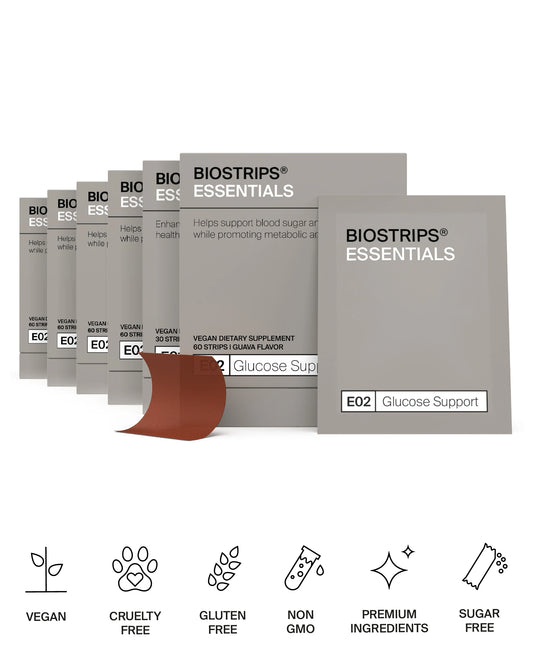Key Takeaways
Introduction: The Supplement Industry's Shortcomings and How You Deserve Better Choices
The supplement industry is vast, with countless products promising to boost your health, energy, and well-being. But behind the flashy labels and enticing promises, there are significant problems. From unnecessary fillers to dosage inaccuracies, the reality is that many supplements on the market today fall short of what consumers expect and deserve.
As we look toward 2025, it's clear that the industry must address these issues. Consumers deserve transparency, cleaner ingredients, and more effective products. You have the right to know what's in your supplements, how they're made, and whether they're really working for you.
In this blog, we'll break down some of the biggest challenges in the supplement industry—so you can make more informed choices about the products you use.
Fillers in Supplements and Their Potential Risks
When it comes to supplements, what you don't see on the label is often just as important as what you do. Many supplements contain fillers, which are inactive ingredients used to bulk up a product, stabilize it, or make it easier to manufacture. But these fillers are not without their downsides. In fact, some may pose risks to your health, especially when consumed regularly over time.
What Are Fillers?
Fillers are non-active substances added to supplements to improve their shelf life, texture, or color, or to make the pill or capsule easier to swallow. While some fillers are harmless, others can cause inflammation, digestive discomfort, or even trigger immune responses in sensitive individuals.
Let’s take a closer look at four common fillers to watch out for:
1. Magnesium Stearate
- What It Is: Magnesium stearate is a flow agent commonly used to prevent ingredients from sticking to manufacturing equipment.
- Potential Risks: Some studies suggest that magnesium stearate can suppress immune function when consumed in large amounts. Additionally, it may cause gastrointestinal discomfort in sensitive individuals.
2. Silicon Dioxide (Silica)
- What It Is: Silicon dioxide is often added to supplements to prevent clumping and improve flow during manufacturing.
- Potential Risks: While considered safe in small amounts, prolonged exposure to silica can lead to inflammation in the digestive system, causing bloating, discomfort, and potential long-term issues for people with digestive sensitivities.
3. Titanium Dioxide
- What It Is: Titanium dioxide is used to whiten the color of supplements and make them more visually appealing.
- Potential Risks: Recent studies have raised concerns about titanium dioxide’s ability to trigger inflammation and oxidative stress in the body, which can contribute to immune issues and increase the risk of chronic health problems.
4. GMO-Derived Ingredients
- What It Is: Some capsules or tablets are made using genetically modified organisms (GMOs), or ingredients that are derived from them.
- Potential Risks: GMOs can introduce allergens or unknown long-term effects, and many consumers prefer to avoid them due to concerns about environmental and health risks.
Other Common Concerns
- Gastric and Digestive Discomfort: Many fillers are poorly tolerated by individuals with sensitive stomachs, leading to issues such as bloating, indigestion, and discomfort.
- Immune Reactions: In some cases, fillers may trigger immune responses, particularly for people with allergies or intolerances.
Why You Should Care About Fillers
The next time you pick up a supplement, take a look at the inactive ingredients listed on the label. Knowing which fillers to avoid can make a significant difference in how your body responds to supplements. The use of excessive fillers not only dilutes the effectiveness of the product but may also lead to inflammation, digestive issues, and immune challenges. As consumers become more health-conscious, the demand for cleaner, more transparent products is rising—and understanding fillers is a key step in making informed choices.
Dosage Problems and Active Ingredient Effectiveness
When it comes to supplements, dosage is everything. Even the best ingredients won’t work if they aren’t delivered in the right amounts. One of the major challenges in the supplement industry today is the inconsistency and inaccuracy of dosages, which can lead to underwhelming results or, worse, potential health risks.
The Problem with Dosages
- Underdosed Supplements: Many supplements are underdosed, meaning they don’t contain enough of the active ingredient to provide any real benefits. This is often done to cut costs or fit into smaller pill sizes, but the result is a product that doesn’t deliver what it promises.
- Overdosed Supplements: On the flip side, some supplements contain too much of a particular ingredient, which can lead to unwanted side effects. For example, high doses of certain vitamins or minerals can cause toxicity or lead to imbalances in the body.
- Inconsistent Potency: Even within the same product, dosage inconsistencies can occur. A lack of standardization in the manufacturing process can lead to some supplements being more potent than others, making it hard to trust the label.
- Blended Formulas: Many supplements feature “proprietary blends” on their labels, which may sound impressive, but often hide the fact that only trace amounts of active ingredients are included. These blends may make the product look good on paper, but in reality, the dosages are often too small to be effective.
Why Dosage Matters for Effectiveness
For supplements to work, the dosage of active ingredients must be carefully calibrated. Whether you’re taking vitamins, minerals, or herbal supplements, the amount you consume directly impacts the effectiveness of the product.
- Too Little: Taking an underdosed supplement is like pouring water into a leaky bucket—no matter how much you try, the intended effect won’t be achieved. You might not get the health benefits you expect, and the supplement may end up being a waste of money.
- Too Much: Overdosing on certain supplements can be harmful. For example, taking too much vitamin A can cause toxicity, while excessive magnesium may lead to digestive issues. In the long run, consistently high doses of some ingredients may do more harm than good.
- Inconsistent Formulas: Even if a product claims to include a beneficial active ingredient, if the dosage varies from pill to pill, you might not receive the same benefit every time you take it.
What to Look For
- Accurate Dosage Information: Always check the label for precise dosage information on the active ingredients. Be wary of products that use proprietary blends or vague ingredient lists, as these can hide the true dosage of key ingredients.
- Evidence-Based Dosages: Look for products that provide dosages aligned with scientific research. Trusted supplement brands should use dosages backed by clinical studies to ensure the product delivers on its claims.
Why It Matters for You
Understanding dosage issues is essential for getting the most out of your supplements. You should feel confident that you’re getting the correct amount of active ingredients for the desired effect. Whether you’re looking to improve your health, boost energy, or support a specific body function, the right dosage can make all the difference.
The Importance of Independent Testing in Supplements
One of the biggest challenges in the supplement industry today is the lack of independent testing. While the FDA regulates dietary supplements, the same level of oversight and testing applied to pharmaceutical drugs doesn’t exist for supplements. This leaves room for potential issues, including inaccurate ingredient lists, contamination, and ineffective dosages. Independent testing is crucial to ensure that the supplements you’re taking are safe, effective, and true to their claims.
Why Independent Testing Matters
- Verifying Ingredient Claims: Independent testing ensures that the supplement contains what the label claims. Without this verification, there's no way to know if the product actually includes the active ingredients in the amounts stated.
- Contamination Risks: Supplements can be contaminated with harmful substances, such as heavy metals, pesticides, or toxins, during the manufacturing process. Independent testing checks for these contaminants and ensures that the product is safe for consumption.
- Ensuring Potency and Effectiveness: As discussed in the previous section, dosage inconsistencies are a common problem. Independent testing can confirm that each batch of a supplement contains the correct dosage of active ingredients, ensuring that the product delivers the expected benefits.
- Avoiding Fillers and Additives: Independent labs can also check for hidden fillers or unwanted additives that aren’t listed on the label. Some manufacturers may include non-beneficial ingredients to bulk up their products or cut costs, but these additives could negatively affect your health.
What Happens Without Independent Testing?
Without independent testing, there is little oversight on whether a supplement meets basic safety and quality standards. Here are some common risks when supplements aren’t properly tested:
- Inaccurate Labels: Without testing, you can’t be sure that the supplement contains the ingredients it claims. This means you could be paying for a product that lacks the potency or effectiveness you expect.
- Contaminated Products: Contaminants like heavy metals or pesticides can slip into supplements during the manufacturing process. These contaminants pose a serious health risk if consumed over time, and without testing, they can go undetected.
- Questionable Quality: Supplements that aren’t tested may have inconsistencies in dosage, purity, or overall quality. You might take the same product every day but receive varying amounts of the active ingredient, reducing its effectiveness.
How to Know if a Product Has Been Independently Tested
- Look for Certifications: Reputable supplement companies will often display certifications or seals from third-party testing organizations on their packaging. Certifications from organizations like NSF International, ConsumerLab, or USP (United States Pharmacopeia) are reliable indicators that a product has been independently tested.
- Check the Brand’s Website: Many companies provide independent testing results or lab reports on their websites. Look for transparency in testing practices to ensure the supplements you’re taking have been properly evaluated.
Why You Should Demand Independent Testing
When it comes to your health, you deserve to know exactly what you’re putting into your body. Independent testing gives you peace of mind that the supplements you take are safe, free from contaminants, and contain the ingredients listed on the label. As a consumer, it’s essential to demand this level of transparency and accountability from supplement brands.
The Struggle with Swallowing Pills
For many people, swallowing pills is a significant challenge. Whether it’s due to the size of the pill, the texture, or even the fear of choking, the discomfort of taking supplements in pill or capsule form is a common issue that often goes overlooked by the supplement industry.
Why Pill Swallowing is a Problem
- Size Matters: Some supplements, particularly multivitamins or herbal blends, are notoriously large, making them difficult to swallow for many people, especially those with conditions like dysphagia (difficulty swallowing).
- Taste and Texture: Pills and capsules can leave an unpleasant aftertaste or have a gritty texture, which can make taking supplements a daily struggle. The discomfort often leads people to skip doses or abandon the supplement altogether.
- Mental Barriers: For some, the psychological discomfort associated with swallowing pills can create anxiety, leading to hesitancy or outright refusal to take their supplements.
Alternative Delivery Methods
Fortunately, advances in supplement technology are offering solutions for people who struggle with swallowing pills. Options like oral strips, powders, and even liquid supplements are becoming more common, providing a smoother, more accessible way to take supplements without the stress of swallowing large tablets.
Why This Matters
If you’ve ever struggled with swallowing pills, you’re not alone—and it’s important to know that there are alternatives available. As supplement technology advances, more user-friendly delivery methods are emerging, making it easier to stay on top of your wellness routine without the discomfort of traditional pills and capsules.
Transparency and Non-FDA Compliance – What to Watch Out For
The FDA plays an essential role in regulating the supplement industry and protecting consumers from unsafe practices. By setting guidelines for what can and cannot be claimed, and ensuring supplements are safe and properly labeled, the FDA helps keep the marketplace accountable. However, not all supplement companies adhere to these regulations, and their non-compliance can mislead consumers and harm the industry’s reputation.
1. The FDA's Role in Protecting Consumers
The FDA's regulations are designed to protect you, the consumer, by ensuring that supplements are:
- Accurately Labeled: Ingredients must be clearly listed, and claims about the product's benefits must align with what the supplement can actually deliver.
- Safe for Consumption: The FDA works to prevent harmful substances, contaminants, or unapproved ingredients from entering the market.
- Free from Misleading Claims: Supplements are not allowed to claim that they can treat, cure, or prevent specific diseases, as this would give the impression that they work like drugs, which undergo far stricter testing.
The companies that follow these regulations are ensuring your safety and well-being. Unfortunately, there are divergent companies that ignore these rules, jeopardizing your health and giving the supplement industry a bad name.
2. The Risks of Non-FDA Compliant Companies
When companies fail to follow FDA regulations, they create risks for consumers. Some common non-compliant practices include:
- False Health Claims: Some brands make misleading claims that their supplements can cure or prevent diseases, which is illegal under FDA regulations. These claims can give consumers false hope and lead them to neglect proper medical care.
- Hidden Ingredients: Non-compliant companies may not fully disclose all of the ingredients in their supplements. This lack of transparency can result in consumers unknowingly ingesting harmful or ineffective substances.
- Contaminated Products: Without proper testing and adherence to FDA guidelines, supplements may be contaminated with harmful substances like heavy metals or bacteria. These contaminants can pose significant health risks if consumed over time.
3. Common Offenders to Watch Out For
There are several types of companies that frequently sidestep FDA regulations:
- Proprietary Blend Offenders: Some brands use proprietary blends to hide the actual amounts of each ingredient in their products. While this may sound innovative, it’s often a way to mask low doses of the active ingredients.
- Bold, Unsupported Claims: Be wary of any supplement that claims to be a "miracle cure" or offers "instant results." These exaggerated promises are usually a sign that the product is not FDA-compliant and is likely to underdeliver.
- No Third-Party Testing: Companies that avoid third-party testing often do so because their products might not meet safety or efficacy standards. Without independent verification, it’s hard to trust that what’s on the label is what’s in the product.
4. Why Transparency and Compliance Matter
Non-compliant companies not only endanger consumer health but also undermine the trust in the entire supplement industry. Honest, reputable brands work hard to follow FDA guidelines and provide transparent, clean products that benefit consumers. When non-compliant companies cut corners, it reflects poorly on the industry as a whole, and the consumer ends up paying the price—both financially and in terms of their health.
5. How to Protect Yourself as a Consumer
To ensure you’re purchasing from a brand that values transparency and follows FDA guidelines, here’s what to look for:
- Check for FDA Compliance: Look for brands that adhere to FDA guidelines, particularly in their labeling and claims. Avoid products that promise quick fixes or miraculous results.
- Look for Third-Party Testing: Reputable brands will have their supplements tested by independent labs to ensure their products are free from contaminants and accurately labeled.
- Research the Brand: Do your homework. Check whether the brand has a history of regulatory violations or non-compliance. Stick with companies that are open about their manufacturing processes, ingredient sourcing, and testing procedures.
Why FDA Compliance is Essential
FDA regulations are in place for a reason: to protect consumers and ensure that the products on the market are safe, effective, and accurately represented. Brands that adhere to these standards are putting your health and safety first, while those that don’t are taking shortcuts that can harm both you and the industry as a whole. By choosing brands that prioritize transparency, compliance, and honesty, you can be confident that you're getting the safest, highest-quality supplements available.
Conclusion: Making Smarter Choices in the Supplement Industry
As we look ahead to 2025, it's clear that the supplement industry is evolving, but there are still significant gaps that consumers need to be aware of. From the hidden dangers of fillers to the importance of accurate dosing, independent testing, and FDA compliance, the landscape can be tricky to navigate. Understanding these issues empowers you to make more informed decisions about the supplements you choose to support your health.
The key takeaway? You have the right to transparency, quality, and safety in the products you use. By staying informed and choosing brands that prioritize FDA compliance, independent testing, and clear labeling, you can protect your health and ensure you're getting the most out of your supplements.
As the industry continues to change, demanding better practices from companies will push the market toward more effective, safer, and cleaner products—products that deliver the benefits you deserve without cutting corners.
